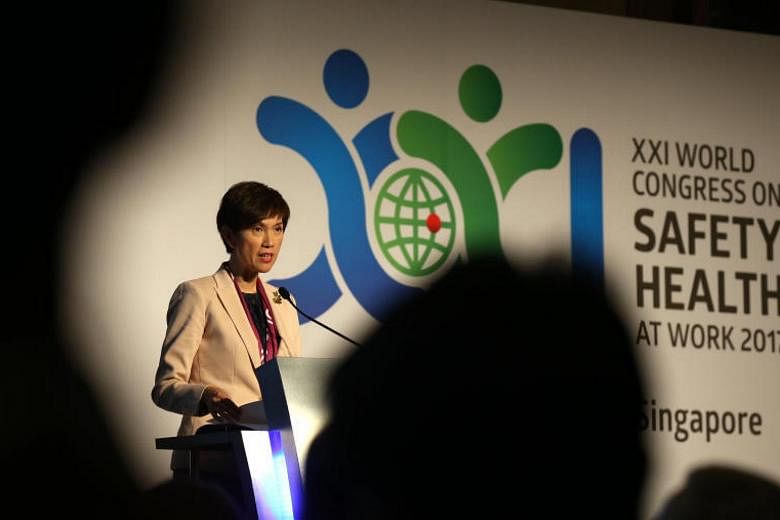SINGAPORE - A new law will require iconic, strategic or large buildings that could be targeted by terrorists to adopt extra security measures in light of the terror threat.
The Infrastructure Protection Bill was introduced in Parliament on Monday (Sept 11) by Second Minister for Home Affairs Josephine Teo, and will be debated at the next sitting.
If it is approved, the law will allow the Ministry of Home Affairs (MHA) to designate new buildings as "special developments", and existing buildings as "special infrastructures".
Such new buildings must integrate security measures as part of their design before they are constructed , while the existing buildings have to put these measures in place when they are renovated.
These buildings will include those that house essential services, have high human traffic, or are iconic landmarks, which could be targeted by terrorists aiming to disrupt services to inflict mass casualties.
The security measures that could be required include video surveillance, security personnel, vehicle barriers, or measures to strengthen the building against blast effects.
In a statement, the Ministry said these steps will "deter and deny attackers, as well as minimise casualties and damage in an attack".
Incorporating these security elements in the design stage, before the building is built is the "more cost-efficient and effective way" to secure a location, it said.
The Ministry will also be given powers to direct selected buildings to put in place security measures to protect against an attack. For instance, if a terrorist attack is deemed to be imminent, "emergency orders" can be issued to close part of a building or require additional security measures to be deployed.
"As far as possible, MHA will continue to try to rely on engagement with facility owners to persuade them to develop and implement practical security measures," said the MHA.
The new Bill will also give security personnel of sensitive installations - such as military camps and immigration checkpoints - powers to deal with threats in their vicinity.
"This will include powers to question suspicious persons and inspect their belongings, and to require them to leave the area," said the MHA.
It will also be illegal to take photos or videos of these installations without authorisation, a move to prevent surveillance by terrorists.
Security personnel will be able to stop people taking photos and videos, and will have powers to examine footage and ask them to be deleted.
At the moment, these sensitive installations come under the existing Protected Areas and Protected Places Act. This law, which has been in place since 1959, will be repealed and relevant provisions will be incorporated into the new Bill.


